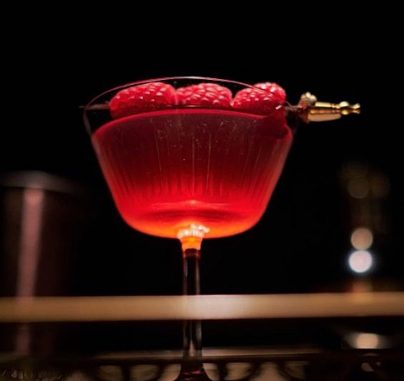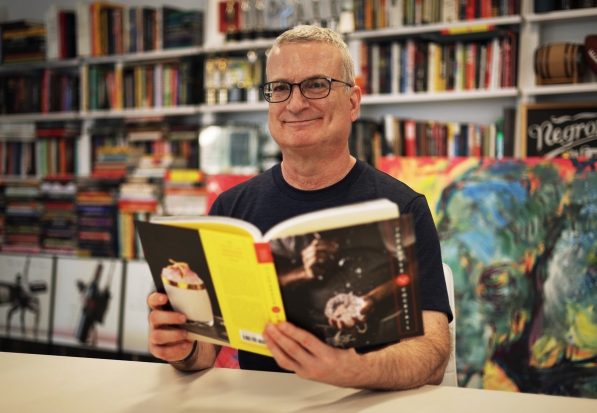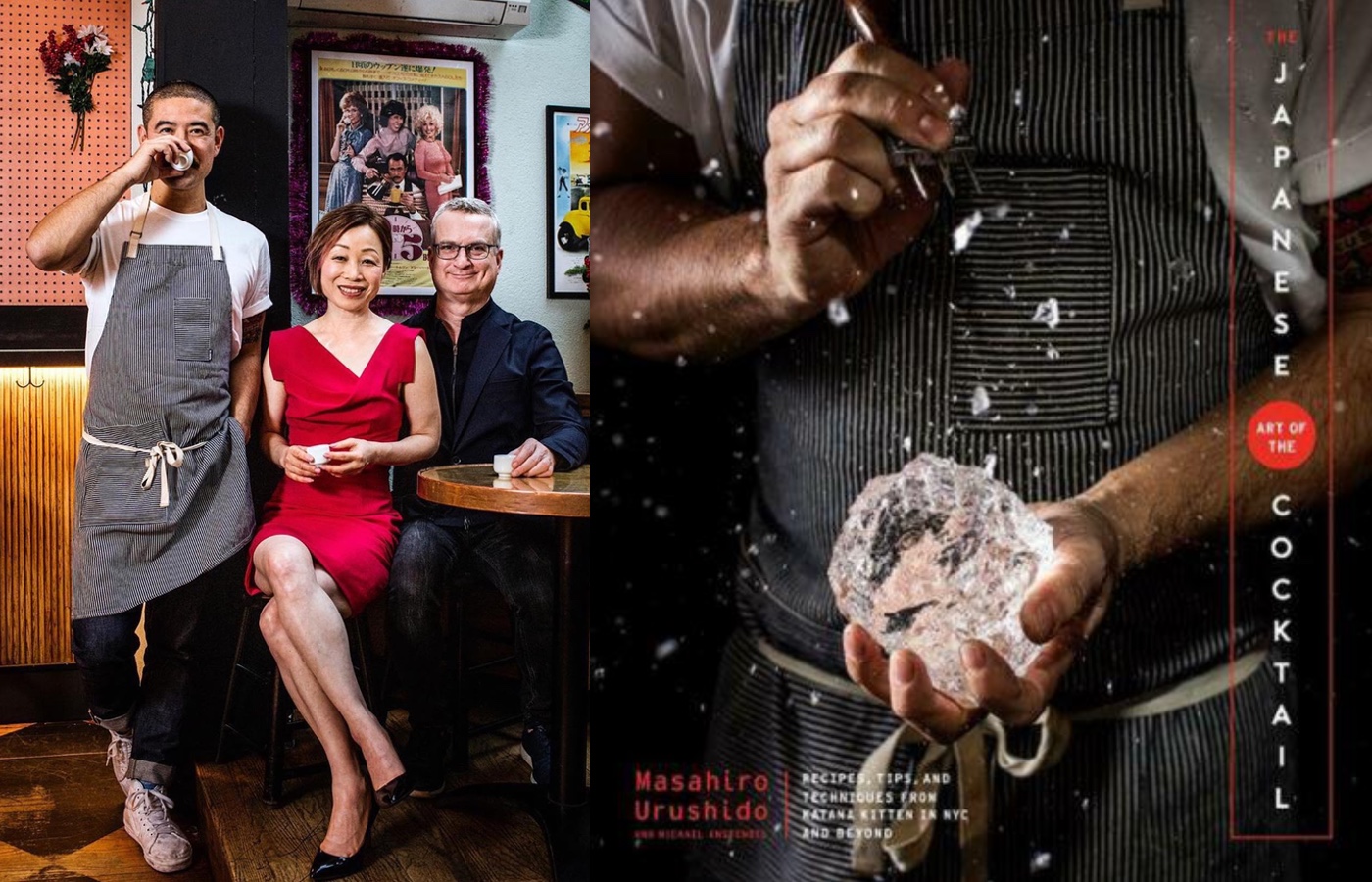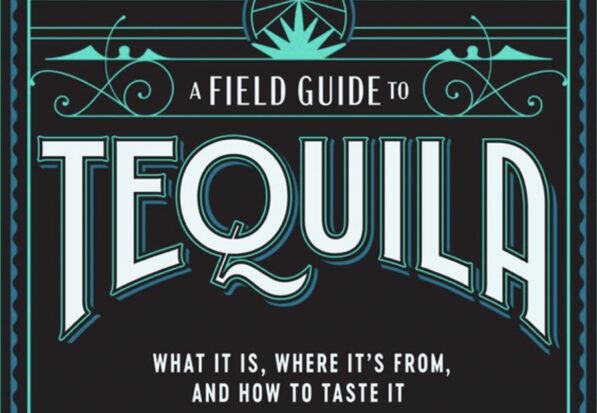Hanna Lee Communications or HLC has long been a prominent name in drinks and hospitality marketing and PR, with Hanna herself recently being listed in 91st place in Drinks International’s Bar World 100.
For the last 17 years, the firm has been instrumental in telling the stories of spirit brands, as well as bars and restaurants from around the country, through mainstream and social media.
In an effort to explore a new way to communicate, the firm has started HLC Book Incubator Media in partnership with publishers Houghton Mifflin Harcourt.
Their first book tells the story of award-winning mixologist, Masahiro Urushido and he’s acclaimed Japanese-American cocktail bar Katana Kitten.
To find out more about the book, we speak to co-author and freelance journalist Michael Anstendig.
For more information, visit hannaleecommunications.com or connect on Instagram, Twitter, Facebook or Clubhouse
Tiff: Hanna Lee Communications or HLC has long been a prominent name in drinks and hospitality marketing and PR, with Hanna herself recently being listed in 91st place in Drinks International's Bar World 100.
For the last 17 years, the firm has been instrumental in telling the stories of spirit brands, as well as bars and restaurants from around the country, through mainstream and social media.
In an effort to explore a new way to communicate, the firm has started HLC Book Incubator Media in partnership with publishers Houghton Mifflin Harcourt.
Their first book tells the story of award-winning mixologist, Masahiro Urushido and he's a claimed Japanese New York cocktail bar, Katana Kitten.
To find out more about the book, we speak to co-author and freelance journalist Michael Anstendig.
Thank you for joining us, Michael.
Michael: It's great to be here. Thank you for this opportunity
Tiff: Why did you and Hannah believe that books were an important way to tell hospitality stories?
Michael: Excellent question. I think, in this day and age with everyone's attention span, getting shorter and shorter as we gaze on our smartphones, there's still a human need to go deep and hear stories in their fullest richest form. And, in PR where we deal with press releases that are normally two or three pages long. And, we've always had the feeling that, many of our clients have a lot more depth than that, that can be captured and that format. So the idea was hatched to basically start a book incubator to enable some of our clients to tell their stories in their fullest sense.
Tiff: As a freelance journalist, what is it about hospitality stories that particularly interest you?
Michael: Hospitality stories, like any stories, really comes down to personalities. People are fascinating to me and of course I'm passionate about food and beverage, so anything that has to do with the people who are doing fascinating things and changing the way we eat and drink are, by definition, interesting to me, and, hopefully, thousands of people around the world. It was always a very obvious, rich vein of material that we were considering.
Tiff: Now, why did you choose Masa's story and that of Katana Kitten as your first venture?
Michael: We had been fortunate to work with Masa and help him launch Katana Kitten which has been a a smash hit since opening day. And, we were really there at the birth. We spent a lot of quality time with Masa. We saw him in action. We had known him actually quite a few years prior to this, but collaborating with him, learning more about him, learning his techniques, learning a little bit about his career trajectory, we were always intrigued and always thought that it would make for a fascinating story. So the apple was ripe for the picking, as it were.
Tiff: The book is divided into a series of in-depth articles. Why did you choose to present it in this way?
Michael: The reason I chose to present it as a series of articles is that I come from a freelance journalism background and that's my forte is doing articles. So it really made sense to be the most direct and easy to get your head around, form of journalism that I could apply to a book format. Instead of looking at it as a single book, of several hundred pages, I broke it out into chapters and each of those chapters, I really conceptualise it as an article and, basically they go in chronological order and tell Masa's life story and then really delve into all the nuances of the Japanese approach to cocktails, and then we really dig into the recipes, both from Masa as well as Japanese and American bartenders, who've adopted this style.
Tiff: Now you spoke about books being a more in-depth way of communicating, but this book is even more in depth than most cocktail books normally are. Was that intentional?
Michael: Absolutely. I think, given the fact that we're dealing with a subject matter, that may be, somewhat unfamiliar to most Western readers, I personally thought it was very important to really go into depth, to, educate the reader and bring them along on this wonderful journey that, most folks, are not that familiar with. Had we been speaking about, regular, conventional cocktails, that would not have been necessary.
Plus I've always been a fan of Japanese culture, especially its mixology, so it was my own passion as well fed into that. It's always been a subject that's enchanted me and being able to go deep, and so I was saying was a real privilege and getting Masa to open up was also quite an experience.
Tiff: So does that mean that not every book that you're going to produce will go into the same sort of depth, that it will depend on the subject matter?
Michael: I would say so. Generally my tendency is to go deep it would not surprise me if other books went down that path as well, but certainly for this book, we had a lot of ground to cover both, in terms of the history of some of the marquee spirits, Japanese whiskey, and shochu, Saké, as well as the many different kinds of drinking experiences in bars, one might encounter in Japan, there was quite, quite a lot to cover there. It's a biography, it's a little bit of a primer on Japanese cocktails and techniques. It's also a little bit of a travel log for anyone interested in going to Japan and experiencing their cocktail culture firsthand.
Tiff: Obviously you had an interest in Japanese bartending before you started the project. Have you spent much time in Japan?
Michael: I visited several times and been to quite a few bars of renown and you really do have to go there in person to get the full immersion. Obviously, there are a lot of Japanese style bars around the world and we're huge fans of them. But it really wasn't until I went to Japan and sat in front of these bartenders that I really understood the experience.
Tiff: What was it about Masa's story that you thought was important to tell?
Michael: I think there were a lot of aspects to Masa story that I found fascinating and that a lot of people seem like they just fall out of the clouds at the top of their game. And, it's very interesting to peel back the layers, like the skin of an onion, to go down and go deep and find out what the real story is.
And Masa’s story was really starting at the very bottom and, literally working his way up, stage by stage, until he first mastered being a server and then becoming a bartender of great acclaim and coming to this country and basically having to relearn a lot of things and expands his repertoire and ultimately opening Katana Kitten.
But it was a very human journey. It was a lot of fits and starts. There was some drama along the way, but he put in his time, he put in his passion. And he created something very unique, that we could all appreciate,
Tiff: I suppose, in this social media world, it is important to show people that sometimes you do need to start at the bottom.
Michael: Absolutely. I think, in the era of celebrity chefs or celebrity bartenders, a lot of people coming into it, people new to the profession, may have expectations of a overnight success, but that's rarely if ever, the case. It takes a lot of hard work, dedication, devotion really a single-minded focus and you need an awful lot of talent.
A lot of this is, God given, for lack of a better word. You need that brilliant talent, but you also have to work at it. You have to hone it. You have to put in your years and years of not being recognised. And just keep your eyes on the prize.
And, I don't think Masa had a master plan, that led him step by step. I think, a lot of things were fortuitous, a lot of things were just life presented opportunities that he grabbed and, with his hard work and dedication, he made each stepping stone, ever higher and higher.
So I think, for me that's the takeaway. It's really something we could all learn from and something that anyone who achieves anything important in this world has gone through.
Tiff: Now bartenders are very used to talking and being the center of attention. Was it difficult for Masa to open up about his life though?
Michael: I'd say it's not easy for anyone to open up about their life. Especially if, it's going to be in print and, hopefully read by many people. But I can't speak for Masa as to whether it was hard for him, but I was very impressed and touched by how frank he was with his disclosures, with his accounts, with his revelations of growing up in a small town and in Japan, in Minowa, not a place that's on many tourists itineraries, shall we say. Very far from Tokyo, very far from Japan's center of sophistication and culture. But he had this amazing grounding being from the countryside and being able to have experienced nature and produce straight from the fields.
It gave him a sensory knowledge and vocabulary and memory base that has served him phenomenally throughout his career. It was fascinating to hear these revelations. His early experiences, buying hooch at a local seven 11 with his friends when he was a teenager and getting outrageously drunk.
So yeah, that really added a human element that I never expected, but that was very charming and it makes for a great read, and it's something I personally, and I think anyone, could relate to. We all did a lot of foolish things growing up.
Tiff: Now bartenders stories, especially their personal lives, are rarely told. Do you think that's something that's going to change?
Michael: I certainly hope so, because I think bartending is a noble profession. Bartenders are artists, they're craftspeople they're philosophers, they're social instigators, ringleaders, they play a very important role in our society that only now is really becoming appreciated.
For generations, at least, in the US bartending was a temporary job, a waystation, something that artists and actors did until their real careers took off or just, it was something people did in their spare time to make some extra cash.
In other parts of the world, the tradition of being a great bartender and putting in the time, that never disappeared. Most of the world did not have Prohibition and their tradition of bartending and respect for it as a profession endured, especially in Japan, where one of Masa's earliest mentors, was probably around 90 years old, still tends bar several days a week and bicycles to the train to get to the bar every single day. But that was lost in our country and it took many years to bring bartending the respect it deserves, and I think it's only time to really spotlight the people behind the profession, just as we do with great chefs, bartenders are no different and they deserve the limelight, they deserve their unique perspectives on the world to be heard. And they have a lot to offer and inspire people from all walks of life - not just fellow bartenders, but everyone.
Tiff: Now you mentioned that Japanese bars and especially Japanese spirits are not particularly well-known, especially in the US. Why is it important to explain what they're all about?
Michael: I would say, over the last five years, especially Japanese whiskey has gained incredible popularity and it's entered the mainstream consciousness. But still people do not have as deep an acquaintanceship with Japanese whiskey as perhaps they do with Scotch whiskey, Irish whiskey, American whiskey, certainly.
I thought it was very important to give a context and talk about how the tradition came about, most people don't know it goes back, many years, was inspired by Scotland, it has a very noble tradition, that's worth investigating. And this book, by no means is a definitive treatment of Japan spirits, and Saké, but it's an introduction. It's just something to give a regular drinker a casual understanding and hopefully wet their appetite to dig deeper into the subject. We saw it as a service to our readers.
Tiff: Now there are a lot of indirect references to work ethic and precision, in the book. Do you think that these are important skills for a modern bartender to have?
Michael: Absolutely. I think those are probably the most important skills for a bartender to have, but frankly, really, for anyone to have. Without a good work ethic, without a dedication to detail, it's hard to succeed in anything in life to be quite honest. These same skills apply to doctors, lawyers, architects, et cetera. I think with bartenders, since we watched them work it's very easy to see these traits being demonstrated and being celebrated.
But these are our universal virtues that are the basis for success in any profession. But I think in Japanese bartending, obviously the work ethic, is there a thousand percent, but I think what impresses most outside observers is the level of precision, is the chipping away of that cube of ice until it is indeed a perfect sphere.
That's very impressive on any level and it's something that for the casual observer, when you first see it, it's almost like an act of magic. It's like, how do they do that? With just one simple ice pick, a single pronged pick, how do they do that? So it's definitely something that's, a valuable technique, but it's also functional and again, the attention to detail is mission critical.
Tiff: Do you think it's that attention to detail that has made Katana Kitten so special on the New York bar scene?
Michael: Absolutely. Katana Kitten, the amount of detail and the awareness of it on so many levels is definitely, one of the keys to its success.
Every cocktail is pristinely prepared. If it's a Toki highball, or if it's one of their boiler makers or one of their creative cocktails, every aspect of the drink has been precisely engineered and stress tested, from the glassware, every single ingredient, the exact way it's prepared, everything is down to a science, but that attention to detail also extends to the hospitality.
How guests are greeted and made to feel welcome. And also, there's an element of playfulness and whimsy at work at Katana Kitten that you can't really put into words, but Masa is a master of the surprise and has ways of recognising guests and making them feel special and really going out of his way to celebrate them.
Yeah, I would say attention to detail is key and that's true of any successful bar, anywhere in the world, there's no room for a sloppy bar or a bar that misses things or omits steps of service. It makes a difference,
Tiff: I suppose, especially now that everyone's, in the US at least, are coming out of COVID, that is particularly important to get people back to bars.
Michael: I think so. I think what we've missed most, over this last year and a half or so, is that kind of ritual of drinking. I've always been told that people don't go to bars to drink because you can drink a lot cheaper at home. People go to bars for the community, they go also for the performance.
And, just the luxury of watching someone professionally prepare a cocktail, is something amazing. And just to hear the clinking of the ice in the glass or the shaking of the ice in the tin, there's no substitute for it. And as much as I am a fan of home bartending, I make no hesitation to drink at a good bar.
It's just a different experience that can't be recreated at home in its entirety. I could use the exact same ingredients, I can have the exact same gear, I could do the technique perfectly. It's not going to be the same experience. And for some reason that I can't explain, it's not even going to taste the same. So, go figure.
Tiff: Now do you think readers gain a better understanding of drinks once they understand the man who's created them?
Michael: Absolutely. I think the more you know you know, about a cocktail, the more you know about who made it, the more you know, about its ingredients, the story of how these ingredients came together, you'll enjoy it that much more. Of course it may not be to your tastes. That's another story, but to really fully enjoy the cocktail, the more, you know, just enriches the experience. Of course, you can sip a cocktail and think it's great and that's the end of the story. And that's perfectly fine as well, but like with anything in life, the deeper understanding you have, you'll have a greater appreciation and that holds true for ordering a bottle of wine. The more you know about the vineyard the more you know about the vintage what challenges were overcome to produce it? The more you'll enjoy that glass. It's no different than a great movie. What the director had to go through, how the actors prepared for their roles. It just enriches the experience.
Tiff: If someone goes out and buys the book, how should they approach it? Where do they start? Can they flit around with it? Or should they read it from cover to cover?
Michael: I would suggest reading the opening chapters first, which really sets the stage for the rest of the book. So you get to know Masa, you get to know about Japanese bartending and what its core elements are. And at that point you could jump around and maybe take a look at some recipes, give them a try and hop around from there.
But I do think, it is nice to get Masa story at the get-go. Why these recipes taste so good because they've been created by someone, who's really gone through the steps and really knows what they're doing
Tiff: While a lot of bartenders will obviously buy the book and read it, who was the book actually written for?
Michael: The book is really written for everyone who has any interest at all in cocktails and an interest in Japanese culture, an interest in bettering the way they drink at home. There are some amazing recipes in the book. Some of them are somewhat complex, others are extremely straightforward and it's really a great toolkit to set people on the road to enjoying this incredible style of cocktail.
Tiff: How approachable do you think are the cocktails in the book?
Michael: As I said they range in difficulty. Making a Japanese highball, which is basically Japanese malt whiskey and carbonated water, is quite approachable. However, it's a multi-step process that has to be taken seriously and done with respect and done in almost a meditative way.
It's a ritual, but it's extremely accessible. And once you have the ritual down, it becomes second nature and you could put out amazing highballs for your enjoyment and your guests. Other recipes in the book involve syrups and tinctures that you would prepare prior and that takes more work and it's a bit more ambitious. But there's nothing crazy difficult in the book, it's all within the home bartenders reach.
Tiff: What's your favourite recipe in the book?
Michael: I would say my favourite recipe in the book is the enoki martini. And really this cocktail sums up the whole premise of Katana Kitten. It's taking this very classic, monumental cocktail, the martini, and giving it a total Japanese make-over with some Japanese ingredients. And a presentation in basically a saké cup, a wooden saké cup. It's really the melding of these two great traditions coming into one and it's also an incredibly tasty drink. So that's why it's my favourite recipe. It's probably one of the most incredible presentations of a martini that I've ever seen.
Tiff: Now coming from a journalism background, how different was it for you to write a book?
Michael: Writing a book is a completely different experience than writing articles. Once you get started on it, it's this enormous weight on your back, on your consciousness that never leaves you. When you're not writing, you're thinking about writing, you're coordinating interviews, you're transcribing interviews.
It's an all consuming 24/7 process. You dream about the book literally. So very different from your everyday freelance journalism of working on an article and calling it a day after that. It's an ongoing process. This took the better of four months, so it was extremely intense, but again, it was all consuming.
Tiff: I was about to ask, how long did it take to assemble everything?
Michael: From the writing part about four months but then, gathering the recipes and putting everything into formats and doing photo shoots. The photography in the book, I have to say, is rather spectacular by Eric Metzker very thoughtful photography.
And, even the cover of the book is very unusual. It has Masa hand carving an ice sphere. And when I think about it it's probably one of the few cocktail books out there that doesn't have a cocktail on the cover. It's very dramatic and it really captures the uniqueness of the style and its some of its hallowed traditions.
Tiff: Now, I assume you were able to actually be a bit more hands-on with things like the photo shoot and the cover then writers normally are
Michael: That I can't say but I was very involved in every aspect of that, as we're Masa and Hanna Lee, of course, so it was definitely a group effort. And we were there for every photo shoot, helping to do some styling and take a look through the lens to make sure everything was going well. But I hope all authors have that kind of hands-on experience, but that was certainly ours.
Tiff: What do you want readers to take away from the book? What's the main point that you want them to remember?
Michael: The main point is that the Japanese approach to cocktails is unique. It has great value. It could add a lot of pleasure to one's drinking experience and it's within reach. And, following Masa's journey and, seeing how he mastered its principles and its techniques and how it's really been large on the world stage with, bartenders, across the U S and other countries, borrowing from its many traditions. It is accessible. We definitely want people to see it as something, they could definitely perfect if they devote themselves to it.
Tiff: Now, with this book out already. Where does the incubator go from here?
Michael: Once you write a book, the next big task is getting it out there and letting people know about it. And that's as much work as actually writing the book. It's perhaps a lot less glamorous, a lot less romantic, you have to put in the work once the book is published, so that people read it and enjoy it.
So that's where we're focusing our energies right now. And, thanks to folks like you. More people are getting to hear about it and it's very much appreciated because, if nobody knows about the book, then what's the point?
Tiff: Are there plans in the works for the next book though, or
Michael: We have some ideas that we're looking at now and we'll be in touch with more details.
Tiff: Will you co-author the next one as well, or
Michael: I think there's a very good likelihood.
Tiff: And how frequently do you imagine that the incubator will actually publish?
Michael: I would say every few years, it's not going to be annual, it will be every several years.
Tiff: Now of course, if people want to find the book, they can do so through all good booksellers and they can connect with Masa on Instagram at @masanyc or with katanakitten_nyc, or with you @ michaelanstendig.
Michael: Correct. And I'd also recommend they visit cocktail kingdom. They can visit that website to purchase the book as well.
Tiff: Excellent. All right, Michael. Thank you so much for taking the time.
Michael: Thank you. This was really a pleasure and I've always admired your work.
So it's it's very flattering and then touching to be a subject.
Tiff: Thank you. And I wish you every success with the book.
Michael: Thank you so much.









